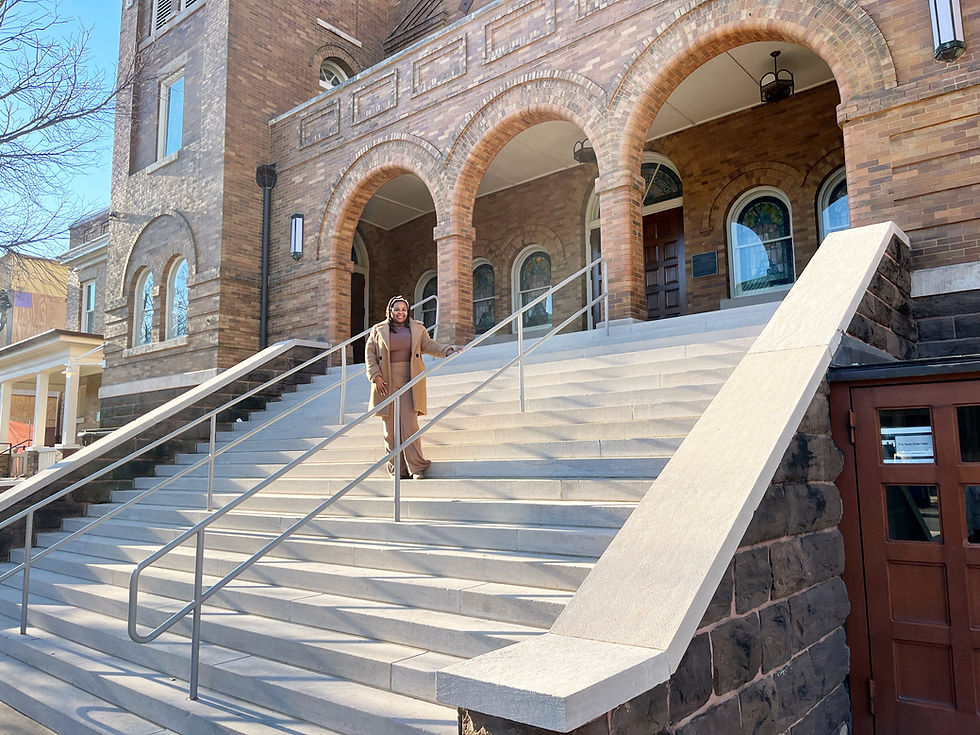From Silence to Citation: A Black Feminist Reckoning
- Shapel LaBorde
- Mar 5, 2025
- 3 min read
In 2012, I stood beside Alice Walker at Spelman College, a moment that felt like being in the presence of a living archive. She is a Black woman who had done the work, paved the road, and left blueprints in the form of novels, essays, and unwavering radical love. A woman who had walked away from Spelman decades earlier in protest after the firing of Howard Zinn, a professor who had dared to teach Black women the full weight of their intellectual power. A woman who understood that power is never given—it is taken, reclaimed, and rebuilt on our own terms.
At the time, I was a young Spelmanite—a student, a thinker, a woman on the cusp of discovering her own voice. But my voice was not what it is now. It was softer, unsure, tangled in the politics of power, deference, and survival.
I was experiencing academic mentoring abuse.
I knew this intuitively—felt it in my body, in the way my spirit recoiled whenever I had to engage with this professor. But intuition alone doesn’t always translate into action, especially when power is unevenly distributed. When you are young and Black and brilliant but still learning how to hold your brilliance without asking for permission. When you are still being taught, explicitly and implicitly, that knowledge only holds weight when it is filtered through the voices of those with institutional authority.
I was being touched—not in the physical sense, but in the way that ideas are handled, claimed, and distorted. My thoughts, my reflections on embodied knowledge, on know-how, were being spoken through me but not credited to me. My intellectual labor was being extracted, repackaged, and positioned as an extension of someone else’s genius. Instead of being nurtured, I was groomed. Instead of being mentored, I was preyed on.
This was not an isolated experience. Black women in the academy have long been unacknowledged architects of thought, uncredited originators of theory, and erased progenitors of radical frameworks. This is precisely why the Cite Black Women movement exists. Founded by Dr. Christen Smith, it is an intellectual call to arms, a demand that Black women’s scholarship be seen, cited, and respected—not just in bibliographies, but in syllabi, in classrooms, in public discourse, and in the ways institutions recognize and compensate intellectual labor. We are History 365.
But in 2012, I didn’t have this language yet. I had the feeling, the knowing, but not the words—and that is what made it so insidious.
The abuse was not just about citation, not just about stolen intellectual labor. It was also about power, about the ways Black women—especially young, brilliant, and vulnerable ones—are often preyed upon in spaces that claim to uplift them. It was about control, about keeping a Black woman’s voice contained just enough to be useful but never enough to be free. It was about molding rather than mentoring, about shaping rather than sharpening.
And it was tragic.
I did not have the tools to protect myself at the time, but I have them now. I have done the work to heal, to untangle the wounds from the wisdom. I have reclaimed my voice, my autonomy, my intellectual authority. And I refuse to be silent.
I stand in the Black feminist epistemological tradition that says our knowledge is not just valid—it is vital. That we are not just thinkers—we are architects, alchemists, creators. That our voices do not need institutional validation to matter.
I share this not as an act of catharsis, but as an act of accountability—to myself, to other Black women who have been silenced, and to those who will come after me. I write this because the wounds of mentorship abuse do not heal in silence. I write this because healed does not mean hushed. I write this because I will not participate in a culture that allows abuse to hide behind the guise of guidance.
I am no longer that young Spelmanite, unsure of how to navigate power. I am a scholar. A Black feminist. A mother. A public intellectual in the making. I am the first in my bloodline to earn a PhD, and I have fought for every inch of my intellectual freedom. And I mean that.
I say all this in a voice that is no longer hesitant but bold, unyielding, and as pink as revolution.
To my fellow Black women scholars, writers, and thinkers—we must not be silent. We must cite each other, protect each other, uplift each other. And when they try to erase us? We will write ourselves back into the narrative.



Comments